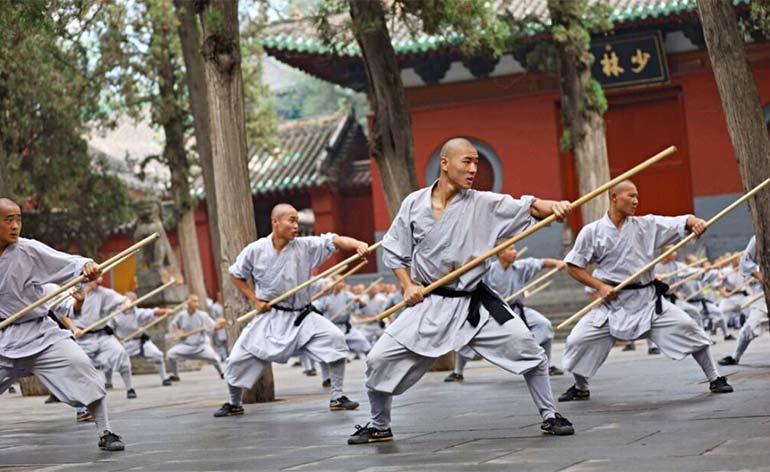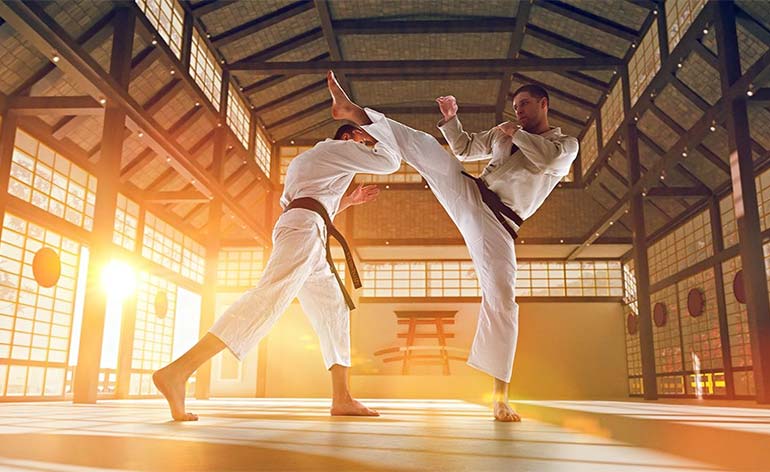
Amid the routine of college life, filled with studying, assignments, and coursework, it is always refreshing to embrace new hobbies and areas of interest. Among these, martial arts stand out as an appealing blend of physical activity and mental discipline. In the wide array of martial arts styles, Kung-Fu distinguishes itself, celebrated for its vigorous forms as well as its historical depth and philosophical richness.
Exploring Kung-Fu offers more than just an engaging physical pursuit; it provides an intriguing topic of study beyond the confines of usual academic subjects. Whether you are a sports aficionado, a history lover, or just someone looking to augment your college life, delving into Kung Fu’s history and philosophy can be a gratifying venture. This new understanding might even lend a unique viewpoint to your essays whenever you decide to write one yourself instead of using a college essay writing service.
The Origins of Kung-Fu
Ancient Roots
Known alternatively as Chinese martial arts, Kung-Fu is thought to have its origins dating back to the Xia Dynasty, over 4,000 years ago. Initially, it was developed as a means of hunting and protecting oneself from wild animals, gradually evolving into a technique of warfare. As time went on, this martial art form grew and honed itself, embodying a deep philosophy and distinct style. Passed down through generations, Kung Fu has become an integral part of the Chinese cultural fabric and historical narrative.
Influence of Buddhism
A significant turning point in Kung-Fu’s history came with the arrival of Buddhism in China. Buddhist monks in the Shaolin Temple adapted these martial skills into a form of exercise that complemented their meditative practices, leading to the birth of Shaolin Kung-Fu. This integration resulted in a unique blend of physical prowess and spiritual enlightenment, making Kung-Fu not only a martial art but also a path to inner peace and harmony.
Kung-Fu Philosophy: The Path of Harmony
The Yin and Yang
The philosophy behind Kung-Fu is deeply rooted in Chinese Taoist principles, especially the concept of Yin and Yang. Yin symbolizes softness, stillness, and receptivity, while Yang represents hardness, movement, and activity. Kung-Fu emphasizes the balance of these two forces. This balance is reflected in the fluidity and control of Kung-Fu movements, showcasing the harmonious interplay of opposing energies.
Five Elements Theory
Another key aspect of Kung-Fu philosophy is the Five Elements Theory, representing wood, fire, earth, metal, and water. Each element symbolizes a different state of energy and is associated with specific martial techniques. This theory shapes the strategic and tactical understanding of Kung-Fu, fostering a more holistic and interconnected view of the world, which can significantly complement your academic learning.
Application of Kung-Fu Philosophy in College
Mental Discipline and Focus
The principles of balance and harmony in Kung-Fu can be applied to your college life. The discipline it instills can help manage academic pressures and maintain focus on your assignments and learning. The mental agility you develop through understanding and practicing Kung-Fu principles can make you more adaptable and resilient in the face of academic challenges.
Physical Well-Being
Practicing Kung-Fu, even at a basic level, can help improve your physical health, which is vital for maintaining stamina during long study sessions. Furthermore, the physical discipline of Kung-Fu fosters a sense of body awareness and control, enabling you to handle the physical demands of college life more effectively.
Coping with Stress
The meditative aspect of Kung-Fu encourages mindfulness, a valuable skill in dealing with the stresses of college life and intense studying. Incorporating these mindfulness techniques into your routine can significantly improve your stress management, promoting a more peaceful and focused state of mind.
Exploring Kung-Fu Further
If your curiosity about Kung-Fu has been stirred, here are some ways you can delve deeper:
- Enroll in a Kung-Fu club at your college or local community.
- Engage with literature and documentaries that delve into the history and philosophy of Kung-Fu.
- Attend Kung-Fu exhibitions and live demonstrations.
Spending time to understand Kung-Fu can also offer an engaging subject for class discussions, presentations, or even essay topics. It’s a path of discovery that expands your horizons, uncovering a new culture, history, and philosophical outlook.
Expanding your knowledge about Kung-Fu doesn’t just revolve around theoretical aspects. As with any martial art, the true essence of Kung-Fu can be grasped through practice. If you feel adventurous enough, try some basic Kung-Fu exercises at home. There are numerous online tutorials aimed at beginners that you can follow. It’s a fun way to engage with the subject physically, and who knows, you might even uncover a hidden passion for martial arts. Remember, it’s not about perfecting the moves but about immersing yourself in the experience and enjoying the journey.
Conclusion
Embracing the history and philosophy of Kung-Fu can add a unique dimension to your college experience, providing both physical and intellectual stimulation. So, the next time you decide not to rely on the best essay writing services to write your papers but to write one yourself, consider infusing your essays with insights from Kung-Fu philosophy.






